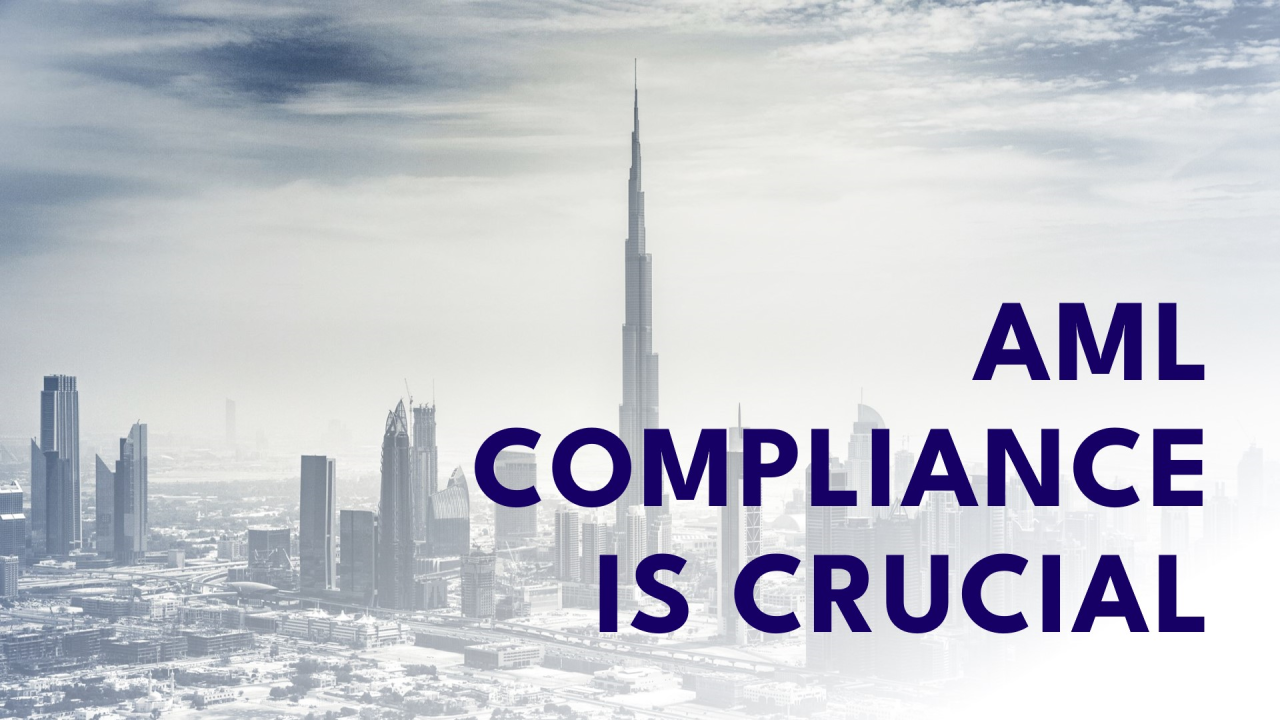The United Arab Emirates (UAE) has established itself as a global financial hub. With its strategic location, strong infrastructure, and commitment to innovation, the UAE attracts significant foreign investment. However, this growth also brings heightened risks of money laundering and terrorist financing. To combat these threats and maintain its financial integrity, the UAE enforces strict Anti-Money Laundering (AML) regulations.
What is AML Compliance?
AML compliance refers to the set of regulations and procedures financial institutions must follow to prevent money laundering. These regulations require institutions to:
Identify and verify customer identities
This includes Know Your Customer (KYC) procedures, where customer information is collected and verified.
Monitor transactions
Suspicious activity reports (SARs) are filed when transactions appear unusual or inconsistent with customer profiles.
Maintain records
Financial institutions must retain detailed records of customer transactions for a specific period.
Train staff
Employees are trained to identify and report suspicious activity.
Why is AML Compliance Important in the UAE?
Maintaining Financial Stability
Effective AML compliance safeguards the UAE’s financial system from criminal activity. This protects legitimate businesses and promotes investor confidence.
Combating Financial Crime
AML regulations help deter money laundering and terrorist financing, ensuring the UAE is not a haven for illicit funds.
Protecting Reputation
Strong AML compliance demonstrates the UAE’s commitment to financial transparency and combats the perception of being a high-risk jurisdiction.
Regulatory Compliance
Failure to comply with AML regulations can lead to hefty fines, reputational damage, and even license revocation.
Challenges of AML Implementation
Despite the importance of AML, financial institutions in the UAE face challenges:
Complexity of Regulations
AML regulations can be complex and constantly evolving, requiring ongoing training and adaptation.
Technological Advancements
New financial technologies and digital currencies can create vulnerabilities that AML systems need to address.
Cost of Implementation
Implementing and maintaining robust AML compliance programs can be resource-intensive.
The Future of AML in the UAE
The UAE is committed to continuously strengthening its AML framework. We can expect to see:
Focus on Innovation
Regulatory authorities are likely to encourage the use of innovative technologies like artificial intelligence (AI) for more efficient AML compliance.
Enhanced Cooperation
Collaboration between financial institutions, law enforcement agencies, and international bodies is crucial for combating evolving financial crime tactics.
Risk-Based Approach
AML regulations may become more risk-based, tailoring requirements to the specific risk profile of each institution and its customers.
Conclusion
AML compliance is not just a regulatory obligation; it’s essential for maintaining a healthy and secure financial system in the UAE. By implementing effective AML programs and staying updated on evolving regulations, financial institutions can play a vital role in safeguarding the UAE’s financial future.
Muzammal Rahim Khan is the CEO and Co-Founder of FineIT, bringing over 15 years of expertise in software development, implementation, and technical consulting across global markets including the U.S., U.K., Europe, Africa, and Asia. He has led the design and delivery of enterprise-grade solutions that modernize compliance, risk management, and financial reporting for banks and financial institutions. Under his leadership, FineIT has built flagship platforms such as Estimator9 (IFRS 9) and ContractHive (IFRS 16), empowering clients with automation, accuracy, and audit-ready confidence. Muzammal combines deep technical knowledge with strategic vision, driving innovation that bridges regulatory requirements with practical, scalable technology. His focus remains on building resilient, future-ready solutions that strengthen trust and efficiency in financial services.
